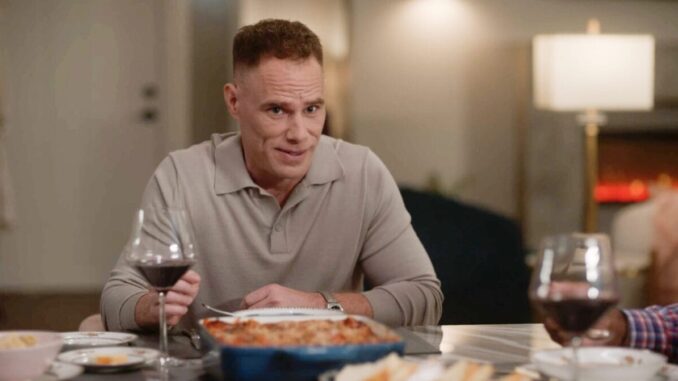
Breaking Boxes and Building Bridges: Matthew Wilkas on So Help Me Todd's Subversion of Queer Stereotypes
In the ever-evolving landscape of television, authentic representation of the LGBTQ+ community remains a crucial, yet often elusive, goal. While strides have been made, characters are frequently confined to predictable tropes and sanitized narratives, reinforcing rather than dismantling harmful stereotypes. Matthew Wilkas, a seasoned actor and outspoken advocate for LGBTQ+ visibility, understands this struggle acutely. His role as Alex, the pragmatic and supportive boyfriend of Lyle (Tristen J. Winger) in CBS’s legal dramedy So Help Me Todd, provides a refreshing departure from these tired portrayals. In interviews, Wilkas eloquently articulates how the show, and his character in particular, actively breaks queer stereotypes and challenges rigid gay labels, fostering a more nuanced and relatable representation of gay men on screen.
One of the most significant ways So Help Me Todd avoids perpetuating harmful stereotypes is through its grounding in normalcy. Alex isn't defined by his sexuality; it's simply a part of who he is. He isn't flamboyant, hyper-sexualized, or relegated to the "gay best friend" archetype. Instead, he is portrayed as a responsible, dependable individual with his own aspirations and anxieties. He works as a public defender, driven by a desire to help others, and actively contributes to the vibrant dynamic of his relationship with Lyle. This portrayal, as Wilkas emphasizes, normalizes the everyday realities of gay men, showcasing their ability to build fulfilling lives outside of pre-conceived notions. "He's just a guy," Wilkas has stated, "who happens to be gay, navigating his relationship and his career, just like anyone else." This subtle yet powerful subversion challenges the prevailing tendency to reduce queer characters to their sexuality, allowing audiences to connect with Alex as a fully realized human being.
Furthermore, the show deliberately avoids imposing rigid gay labels on its characters. Alex and Lyle's relationship is not presented as a homogenous, idealized version of gay romance. Instead, their interactions are filled with the same complexities, disagreements, and humor that characterize any relationship. They navigate career pressures, family dynamics, and personal insecurities, providing a realistic glimpse into the ebb and flow of a long-term partnership. This nuanced approach is crucial in dismantling the myth that gay relationships are fundamentally different from heterosexual ones. By showcasing the common ground, So Help Me Todd encourages empathy and understanding, fostering a sense of shared humanity that transcends sexual orientation.
Wilkas also points out the importance of showcasing diverse representations within the LGBTQ+ community itself. Alex's character stands in contrast to stereotypical portrayals of gay men as perpetually single, emotionally unavailable, or obsessed with superficiality. He represents a different kind of gay man – one who values commitment, prioritizes meaningful connections, and possesses a strong moral compass. This diversity of representation is essential in challenging the idea that there is a singular "gay experience." By showcasing a spectrum of personalities, lifestyles, and relationship dynamics, So Help Me Todd acknowledges the inherent complexity and richness of the LGBTQ+ community.
However, the show's success in breaking down barriers wouldn't be possible without the commitment to writing complex and compelling characters. The writers on So Help Me Todd have created a world where characters are defined by their actions, their relationships, and their individual struggles, not by their sexual orientation. This focus on character development allows the actors to bring their characters to life with authenticity and nuance, creating a believable and relatable portrayal that resonates with audiences. Wilkas's own passion for the role is evident in his performances, imbuing Alex with a warmth, humor, and genuine concern for those around him.
In conclusion, So Help Me Todd represents a significant step forward in the representation of LGBTQ+ individuals on television. By actively breaking queer stereotypes, challenging rigid gay labels, and focusing on the complexities of human relationships, the show provides a refreshing and relatable portrayal of gay men that transcends simplistic narratives. Matthew Wilkas, through his insightful portrayal of Alex, embodies this commitment to authenticity and diversity. He showcases the power of nuanced storytelling to break down barriers, build bridges, and ultimately foster a more inclusive and understanding society. As television continues to evolve, shows like So Help Me Todd serve as a reminder that genuine representation is not just about ticking boxes, but about creating characters that reflect the rich tapestry of human experience in all its multifaceted glory.
